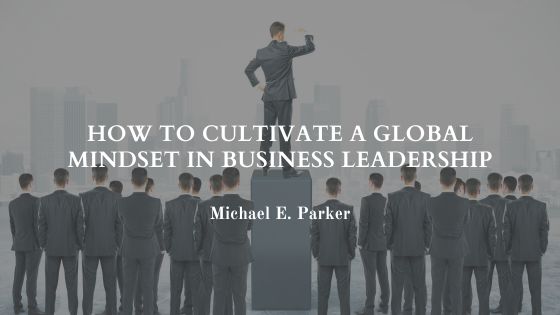Geographic boundaries no longer confine businesses in today’s interconnected world. Leaders must navigate diverse cultures, economies, and regulatory landscapes to succeed in the global marketplace. Cultivating a global mindset has become essential for business leaders who want to drive growth, innovation, and long-term success in an increasingly complex and competitive environment. But what does it mean to have a global mindset, and how can business leaders develop this crucial trait?
What is a Global Mindset?
A global mindset refers to the ability to appreciate and understand different cultures, perspectives, and business practices, and to adapt to diverse environments. It’s more than just awareness of globalization; it involves being open to new ways of thinking, understanding the broader business context, and recognizing the value different perspectives bring.
Leaders with a global mindset are skilled at managing cross-cultural teams, identifying opportunities in diverse markets, and fostering inclusive work environments. They are flexible, empathetic, and able to see challenges and opportunities from a global perspective, rather than just a local or regional one.
Why is a Global Mindset Important for Business Leaders?
- Expanding Market Opportunities: Globalization has opened doors to new markets, allowing businesses to grow internationally. Leaders with a global mindset can identify emerging markets and navigate the complexities of entering new regions.
- Fostering Innovation: Exposure to different cultures and business practices can lead to innovative ideas and solutions. Global-minded leaders understand the importance of diverse perspectives in driving creativity and innovation within their organizations.
- Managing Cross-Cultural Teams: As companies become more global, their workforces become more diverse. A global mindset enables leaders to manage cross-cultural teams effectively, fostering collaboration and ensuring that diverse viewpoints are valued.
- Building Resilience: Leaders who understand global trends and challenges are better equipped to navigate uncertainty. Whether political instability, economic fluctuations, or cultural differences, an international mindset helps leaders stay adaptable and resilient in the face of change.
How to Cultivate a Global Mindset
- Embrace Lifelong Learning: The first step to developing a global mindset is to remain curious and committed to learning. Keep up-to-date on global trends, economic shifts, and cultural practices. Read international news, attend global business forums, and enroll in courses that enhance your understanding of the global business landscape.
- Experience Different Cultures: Traveling to different countries or living abroad can broaden your perspective on business and culture. If international travel isn’t feasible, immerse yourself in other cultural experiences within your own country. Seek out diverse communities, attend cultural events, and learn new languages. This exposure helps you understand how other cultures approach problem-solving, leadership, and business.
- Build a Diverse Network: Surround yourself with people from diverse backgrounds. Networking with professionals from different cultures and industries will expose you to different viewpoints and ideas. This will not only enhance your global mindset but also build a valuable support system of global contacts.
- Develop Cultural Intelligence (CQ): Cultural intelligence is the ability to relate to and work effectively across cultures. Leaders with high CQ know their own cultural biases and can adapt their communication and leadership styles to suit different cultural contexts. This makes them more effective when leading global teams or negotiating international deals.
- Foster Inclusivity in the Workplace: Encourage diversity and inclusivity within your organization. Create an environment where employees from different backgrounds feel valued and respected. This enhances innovation and positions your company as a global player that attracts top talent from around the world.
- Stay Adaptable: Global leaders must be flexible and adaptable to thrive in different environments. This means being open to change, adjusting strategies when necessary, and recognizing that the “one-size-fits-all” approach rarely works in a global context.
Conclusion
Cultivating a global mindset is not just a nice-to-have skill but a necessity for today’s business leaders. It empowers them to navigate the complexities of international markets, manage diverse teams, and foster innovation. By embracing lifelong learning, experiencing different cultures, and building cultural intelligence, leaders can position themselves—and their organizations—for long-term success in the global marketplace. A global mindset is the foundation for leadership in an increasingly interconnected world.
